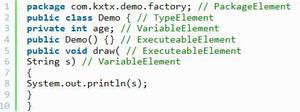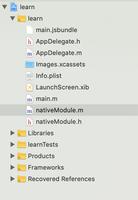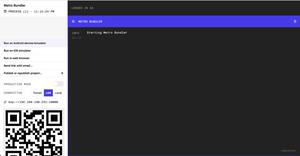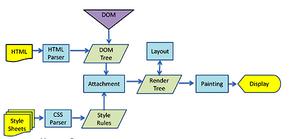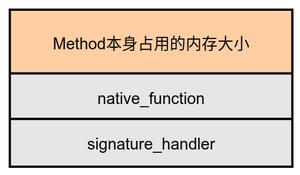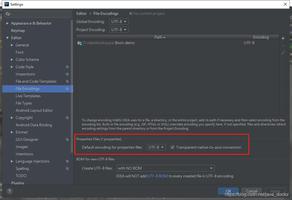【从源码分析】可能是ip流量最实用的React Natioll异常解决方案【建议收藏家】
前言
在做React Native混合开发时,生产环境有时会遇到打开RN(即React Native简称)应用白屏、RN页面内操作闪退到native页面或者直接导致APP Crash的情况。通过分析APP日志,发现原因可以归类为以下两种:
- js 层编译运行时报错。一般是由于某些特殊的数据或情景导致js执行报错;
- js 转译 native UI 或与 native modules通信时出现异常.
对于第一点,可以很快地通过log追踪到出现问题的js代码并解决,但是对于第二点,往往是框架底层代码执行报错阻塞了UI渲染,报错日志信息无法定位出哪里出了问题,如:
06-17 17:59:49.482 10253 24147 24401 E AndroidRuntime: com.facebook.react.common.c: Error: JS Functions are not convertible to dynamic06-17 17:59:49.482 10253 24147 24401 E AndroidRuntime:
06-17 17:59:49.482 10253 24147 24401 E AndroidRuntime: This error is located at:
06-17 17:59:49.482 10253 24147 24401 E AndroidRuntime: in RCTView
06-17 17:59:49.482 10253 24147 24401 E AndroidRuntime: in RCTView
06-17 17:59:49.482 10253 24147 24401 E AndroidRuntime: in RCTView
06-17 17:59:49.482 10253 24147 24401 E AndroidRuntime: in u
06-17 17:59:49.482 10253 24147 24401 E AndroidRuntime: in Tile
06-17 17:59:49.482 10253 24147 24401 E AndroidRuntime: in Tile
06-17 17:59:49.482 10253 24147 24401 E AndroidRuntime: in RCTView
06-17 17:59:49.482 10253 24147 24401 E AndroidRuntime: in RCTView
06-17 17:59:49.482 10253 24147 24401 E AndroidRuntime: in TouchableWithoutFeedback
06-17 17:59:49.482 10253 24147 24401 E AndroidRuntime: in RCTView
06-17 17:59:49.482 10253 24147 24401 E AndroidRuntime: in Unknown
06-17 17:59:49.482 10253 24147 24401 E AndroidRuntime: in RCTView
06-17 17:59:49.482 10253 24147 24401 E AndroidRuntime: in RCTView
06-17 17:59:49.482 10253 24147 24401 E AndroidRuntime: in h
06-17 17:59:49.482 10253 24147 24401 E AndroidRuntime: in RCTView
06-17 17:59:49.482 10253 24147 24401 E AndroidRuntime: in RCTScrollView
06-17 17:59:49.482 10253 24147 24401 E AndroidRuntime: in u
06-17 17:59:49.482 10253 24147 24401 E AndroidRuntime: in v
06-17 17:59:49.482 10253 24147 24401 E AndroidRuntime: in f
06-17 17:59:49.482 10253 24147 24401 E AndroidRuntime: in RCTView
06-17 17:59:49.482 10253 24147 24401 E AndroidRuntime: in RCTView
06-17 17:59:49.482 10253 24147 24401 E AndroidRuntime: in h
06-17 17:59:49.482 10253 24147 24401 E AndroidRuntime: in AndroidHorizontalScrollContentView
06-17 17:59:49.482 10253 24147 24401 E AndroidRuntime: in AndroidHorizontalScrollView
06-17 17:59:49.482 10253 24147 24401 E AndroidRuntime: in u
06-17 17:59:49.482 10253 24147 24401 E AndroidRuntime: in v
06-17 17:59:49.482 10253 24147 24401 E AndroidRuntime: in f
06-17 17:59:49.482 10253 24147 24401 E AndroidRuntime: in RCTView
06-17 17:59:49.482 10253 24147 24401 E AndroidRuntime: in n
06-17 17:59:49.482 10253 24147 24401 E AndroidRuntime: in inject-with-store(n)
06-17 17:59:49.482 10253 24147 24401 E AndroidRuntime: in MobXProvider
06-17 17:59:49.482 10253 24147 24401 E AndroidRuntime: in I
06-17 17:59:49.482 10253 24147 24401 E AndroidRuntime: in RCTView
06-17 17:59:49.482 10253 24147 24401 E AndroidRuntime: in RCTView
06-17 17:59:49.482 10253 24147 24401 E AndroidRuntime: in c, stack:
06-17 17:59:49.482 10253 24147 24401 E AndroidRuntime: <unknown>@-1
06-17 17:59:49.482 10253 24147 24401 E AndroidRuntime: value@28:2227
06-17 17:59:49.482 10253 24147 24401 E AndroidRuntime: <unknown>@19:1668
06-17 17:59:49.482 10253 24147 24401 E AndroidRuntime: Ci@89:62783
06-17 17:59:49.482 10253 24147 24401 E AndroidRuntime: qi@89:66674
06-17 17:59:49.482 10253 24147 24401 E AndroidRuntime: ea@89:69555
06-17 17:59:49.482 10253 24147 24401 E AndroidRuntime: <unknown>@89:81296
06-17 17:59:49.482 10253 24147 24401 E AndroidRuntime: unstable_runWithPriority@164:3238
06-17 17:59:49.482 10253 24147 24401 E AndroidRuntime: ja@89:81253
06-17 17:59:49.482 10253 24147 24401 E AndroidRuntime: Oa@89:81007
06-17 17:59:49.482 10253 24147 24401 E AndroidRuntime: Wa@89:80310
06-17 17:59:49.482 10253 24147 24401 E AndroidRuntime: Aa@89:79323
06-17 17:59:49.482 10253 24147 24401 E AndroidRuntime: Ki@89:68624
06-17 17:59:49.482 10253 24147 24401 E AndroidRuntime: Ki@-1
06-17 17:59:49.482 10253 24147 24401 E AndroidRuntime: yt@89:21420
06-17 17:59:49.482 10253 24147 24401 E AndroidRuntime: y@115:657
06-17 17:59:49.482 10253 24147 24401 E AndroidRuntime: callTimers@115:2816
06-17 17:59:49.482 10253 24147 24401 E AndroidRuntime: value@28:3311
06-17 17:59:49.482 10253 24147 24401 E AndroidRuntime: <unknown>@28:822
06-17 17:59:49.482 10253 24147 24401 E AndroidRuntime: value@28:2565
06-17 17:59:49.482 10253 24147 24401 E AndroidRuntime: value@28:794
06-17 17:59:49.482 10253 24147 24401 E AndroidRuntime: value@-1
06-17 17:59:49.482 10253 24147 24401 E AndroidRuntime: at com.facebook.react.modules.core.ExceptionsManagerModule.showOrThrowError(ExceptionsManagerModule.java:54)
06-17 17:59:49.482 10253 24147 24401 E AndroidRuntime: at com.facebook.react.modules.core.ExceptionsManagerModule.reportFatalException(ExceptionsManagerModule.java:38)
06-17 17:59:49.482 10253 24147 24401 E AndroidRuntime: at java.lang.reflect.Method.invoke(Native Method)
06-17 17:59:49.482 10253 24147 24401 E AndroidRuntime: at com.facebook.react.bridge.JavaMethodWrapper.invoke(JavaMethodWrapper.java:372)
06-17 17:59:49.482 10253 24147 24401 E AndroidRuntime: at com.facebook.react.bridge.JavaModuleWrapper.invoke(JavaModuleWrapper.java:158)
06-17 17:59:49.482 10253 24147 24401 E AndroidRuntime: at com.facebook.react.bridge.queue.NativeRunnable.run(Native Method)
06-17 17:59:49.482 10253 24147 24401 E AndroidRuntime: at android.os.Handler.handleCallback(Handler.java:907)
06-17 17:59:49.482 10253 24147 24401 E AndroidRuntime: at android.os.Handler.dispatchMessage(Handler.java:105)
06-17 17:59:49.482 10253 24147 24401 E AndroidRuntime: at com.facebook.react.bridge.queue.MessageQueueThreadHandler.dispatchMessage(MessageQueueThreadHandler.java:29)
06-17 17:59:49.482 10253 24147 24401 E AndroidRuntime: at android.os.Looper.loop(Looper.java:216)
06-17 17:59:49.482 10253 24147 24401 E AndroidRuntime: at com.facebook.react.bridge.queue.MessageQueueThreadImpl$4.run(MessageQueueThreadImpl.java:232)
06-17 17:59:49.482 10253 24147 24401 E AndroidRuntime: at java.lang.Thread.run(Thread.java:784)
应用出现异常还不是最糟糕的,糟糕的是因为出现异常,带给了用户糟糕的体验,尽管实际出现几率非常低。
我们应该在出现异常时,通过降级UI(如web端常见的404页面、"网络开小差了,请稍后再试"弹窗)提示和安慰用户,并引导用户转向正常页面。
很遗憾,通常情况下我们现在并没有这个主动权,一切异常处理都是由 React Native 框架自己完成的。因此,我们要从React Native中接管异常处理权力来实现我们自己的逻辑(类似 反转控制反转 思想)
下面,将带领大家一步步分析并实现。
分析React Native 的红屏/黄屏提示
不管是何种原因导致RN应用异常,在开发模式环境(在发布版 release/production中都是自动禁用的),默认情况下都会以红屏(red box)或黄屏(yellow box)方式全屏提示:
红屏: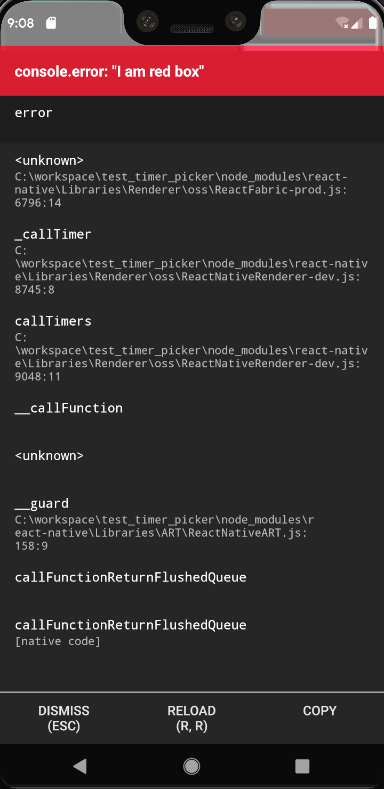
黄屏: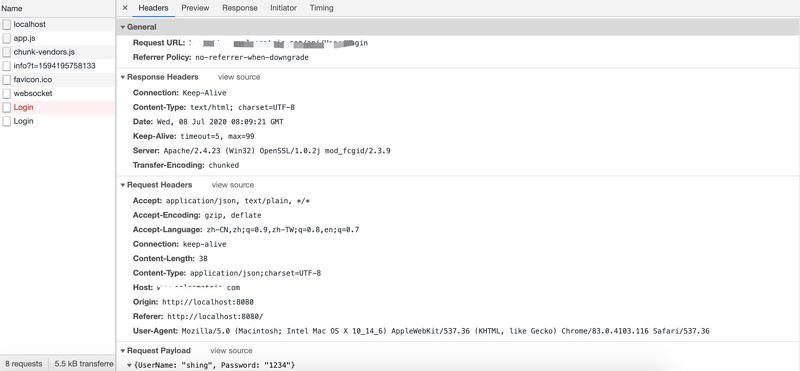
在官方描述中:
### 红屏错误应用内的报错会以全屏红色显示在应用中(调试模式下),我们称为红屏(red box)报错。你可以使用`console.error()`来手动触发红屏错误。
### 黄屏警告
应用内的警告会以全屏黄色显示在应用中(调试模式下),我们称为黄屏(yellow box)报错。点击警告可以查看详情或是忽略掉。和红屏报警类似,你可以使用`console.warn()`来手动触发黄屏警告。
这2个全屏提示就是 React Native 对RN应用异常的处理。
那么思路来了,我们只需要找到 RN 弹出红屏、黄屏的地方,并将之替换为我们自己的业务逻辑即可。
示意图如下: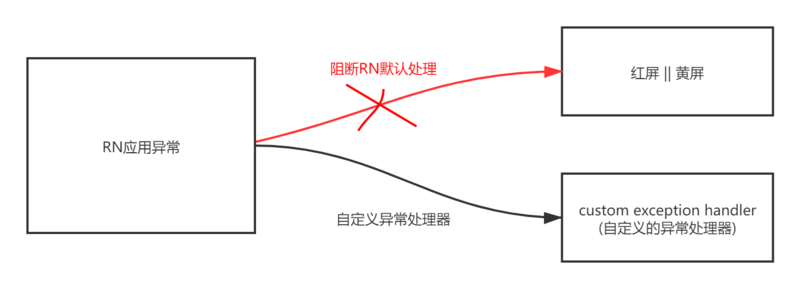
OK,接下来我们需要从源码中去找到这个切入口,不要害怕源码,跟着我的思路,let's go!
从源码上找出切入口
1.找出红屏切入点
在上述红屏图片中,我们通过 console.error('I am red box') 触发了红屏提示。在提示中打印出了错误栈追踪信息:
console.error: "I am red box"error
<unknown>
C:\workspace\test_timer_picker\node_modules\react-native\Libraries\Renderer\oss\ReactFabric-prod.js:6808:9
_callTimer
C:\workspace\test_timer_picker\node_modules\react-native\Libraries\Renderer\oss\ReactNativeRenderer-dev.js:8778:10
callTimers
C:\workspace\test_timer_picker\node_modules\react-native\Libraries\Renderer\oss\ReactNativeRenderer-dev.js:9080:8
__callFunction
<unknown>
__guard
C:\workspace\test_timer_picker\node_modules\react-native\Libraries\ART\ReactNativeART.js:169:9
callFunctionReturnFlushedQueue
callFunctionReturnFlushedQueue
[native code]
其中,指出了错误出现的文件位置:
\node_modules\react-native\Libraries\Renderer\oss\ReactFabric-prod.js\node_modules\react-native\Libraries\Renderer\oss\ReactNativeRenderer-dev.js
\node_modules\react-native\Libraries\ART\ReactNativeART.js
依次在这几个文件中查询 console.error,可以在 ReactNativeRenderer-dev.js 文件中的showErrorDialog方法中找到这么一段注释:
ExceptionsManager.handleException(errorToHandle, false);// Return false here to prevent ReactFiberErrorLogger default behavior of
// logging error details to console.error. Calls to console.error are
// automatically routed to the native redbox controller, which we've already
// done above by calling ExceptionsManager.
意思是“调用 console.error 会自动导航到 native 红屏 controller” ,再查看showErrorDialog方法的注释:
/*** Intercept lifecycle errors and ensure they are shown with the correct stack
* trace within the native redbox component.
*/
function showErrorDialog(capturedError) {/****/}
意思是“截获生命周期错误,并确保在native redbox 组件中显示正确的堆栈跟踪”
Perfect,我们根据错误栈信息一下找到了红屏的原因!
再仔细看这一句注释:
//Calls to console.error are// automatically routed to the native redbox controller, which we've already
// done above by calling ExceptionsManager.
“调用 console.error 会自动导航到 native 红屏 controller的原因,是我们已经在上面调用了 ExceptionsManager”
那么此时,我们可以想到,产生红屏 === 因为 ExceptionsManager 做了什么 我们要做的是去将ExceptionsManager实现的逻辑替换成我们自己的逻辑!
ok,继续看 ExceptionsManager.js,它的路径为:node_modules\react-native\Libraries\Core\ExceptionsManager.js,内容如下:
/*** Copyright (c) Facebook, Inc. and its affiliates.
*
* This source code is licensed under the MIT license found in the
* LICENSE file in the root directory of this source tree.
*
* @format
* @flow
*/
'use strict';
import type {ExtendedError} from 'parseErrorStack';
/**
* Handles the developer-visible aspect of errors and exceptions
*/
let exceptionID = 0;
function reportException(e: ExtendedError, isFatal: boolean) {
const {ExceptionsManager} = require('NativeModules');
if (ExceptionsManager) {
const parseErrorStack = require('parseErrorStack');
const stack = parseErrorStack(e);
const currentExceptionID = ++exceptionID;
const message =
e.jsEngine == null ? e.message : `${e.message}, js engine: ${e.jsEngine}`;
if (isFatal) {
ExceptionsManager.reportFatalException(
message,
stack,
currentExceptionID,
);
} else {
ExceptionsManager.reportSoftException(message, stack, currentExceptionID);
}
if (__DEV__) {
const symbolicateStackTrace = require('symbolicateStackTrace');
symbolicateStackTrace(stack)
.then(prettyStack => {
if (prettyStack) {
ExceptionsManager.updateExceptionMessage(
e.message,
prettyStack,
currentExceptionID,
);
} else {
throw new Error('The stack is null');
}
})
.catch(error =>
console.warn('Unable to symbolicate stack trace: ' + error.message),
);
}
}
}
declare var console: typeof console & {
_errorOriginal: Function,
reportErrorsAsExceptions: boolean,
};
/**
* Logs exceptions to the (native) console and displays them
*/
function handleException(e: Error, isFatal: boolean) {
// Workaround for reporting errors caused by `throw 'some string'`
// Unfortunately there is no way to figure out the stacktrace in this
// case, so if you ended up here trying to trace an error, look for
// `throw '<error message>'` somewhere in your codebase.
if (!e.message) {
e = new Error(e);
}
if (console._errorOriginal) {
console._errorOriginal(e.message);
} else {
console.error(e.message);
}
reportException(e, isFatal);
}
function reactConsoleErrorHandler() {
console._errorOriginal.apply(console, arguments);
if (!console.reportErrorsAsExceptions) {
return;
}
if (arguments[0] && arguments[0].stack) {
reportException(arguments[0], /* isFatal */ false);
} else {
const stringifySafe = require('stringifySafe');
const str = Array.prototype.map.call(arguments, stringifySafe).join(', ');
if (str.slice(0, 10) === '"Warning: ') {
// React warnings use console.error so that a stack trace is shown, but
// we don't (currently) want these to show a redbox
// (Note: Logic duplicated in polyfills/console.js.)
return;
}
const error: ExtendedError = new Error('console.error: ' + str);
error.framesToPop = 1;
reportException(error, /* isFatal */ false);
}
}
/**
* Shows a redbox with stacktrace for all console.error messages. Disable by
* setting `console.reportErrorsAsExceptions = false;` in your app.
*/
function installConsoleErrorReporter() {
// Enable reportErrorsAsExceptions
if (console._errorOriginal) {
return; // already installed
}
// Flow doesn't like it when you set arbitrary values on a global object
console._errorOriginal = console.error.bind(console);
console.error = reactConsoleErrorHandler;
if (console.reportErrorsAsExceptions === undefined) {
// Individual apps can disable this
// Flow doesn't like it when you set arbitrary values on a global object
console.reportErrorsAsExceptions = true;
}
}
module.exports = {handleException, installConsoleErrorReporter};
我们通过语义良好的方法名以及清晰的注释可以了解到:
其暴露了2个方法:
handleException—— 通过console.error()&reportException()处理凡是以throw '<error message>'方式抛出的异常;installConsoleErrorReporter—— 重载console.error,只要是使用console.error打印信息都会以“红屏”的方式显示错误堆栈信息。支持设置console.reportErrorsAsExceptions = false;将此行为关闭。
分析到这一步,可以明显地感觉到,一切指向 console.error 方法!!
我们继续在 react native 源码中进行查询,找到installConsoleErrorReporter()方法在node_modules\react-native\Libraries\Core\setUpErrorHandling.js 中被调用:
/*** Copyright (c) Facebook, Inc. and its affiliates.
*
* This source code is licensed under the MIT license found in the
* LICENSE file in the root directory of this source tree.
*
* @flow strict-local
* @format
*/
'use strict';
/**
* Sets up the console and exception handling (redbox) for React Native.
* You can use this module directly, or just require InitializeCore.
*/
const ExceptionsManager = require('ExceptionsManager');
ExceptionsManager.installConsoleErrorReporter();
// Set up error handler
if (!global.__fbDisableExceptionsManager) {
const handleError = (e, isFatal) => {
try {
ExceptionsManager.handleException(e, isFatal);
} catch (ee) {
console.log('Failed to print error: ', ee.message);
throw e;
}
};
const ErrorUtils = require('ErrorUtils');
ErrorUtils.setGlobalHandler(handleError);
}
其注释十分清晰地指出:“为 React Native 设置 console 以及 异常处理(红屏)”
其核心设置代码是:
const ErrorUtils = require('ErrorUtils');ErrorUtils.setGlobalHandler(handleError); // 这就是我们要找的切入点
这就是我们要找的最终切入点,所有异常全部由ErrorUtils.setGlobalHandler的回调函数处理,只要将其设置为我们自己定义的回调函数就能从RN手中接过异常处理权了!!!
如:
global.ErrorUtils.setGlobalHandler(e=> {/*处理异常*/
console.log('%c 处理异常 .....', 'font-size:12px;color:#869')
console.log(e.message)
// do something to handle exception
//...
})
Nice~,接下来我们继续寻找黄屏(yellow box)的原因。
2.找出黄屏切入点
与红屏报错原因不同,熟悉js开发的同学应该知道,唯一能输出警告信息的就是调用console.warn()。在上述的黄屏提示中,并没有打印出栈追踪信息,但是我们可以开启debug模式(开发者菜单 -> Debug JS Remotely),可以在控制台看到更加详细的栈追踪信息:
很明显,黄屏提示是由YellowBox.js输出的。
继续查看 RN 源码,找到其位置:node_modules\react-native\Libraries\YellowBox\YellowBox.js,内容如下:
/*** Copyright (c) Facebook, Inc. and its affiliates.
*
* This source code is licensed under the MIT license found in the
* LICENSE file in the root directory of this source tree.
*
* @flow
* @format
*/
'use strict';
const React = require('React');
import type {Category} from 'YellowBoxCategory';
import type {Registry, Subscription} from 'YellowBoxRegistry';
type Props = $ReadOnly<{||}>;
type State = {|
registry: ?Registry,
|};
let YellowBox;
/**
* YellowBox displays warnings at the bottom of the screen.
*
* Warnings help guard against subtle yet significant issues that can impact the
* quality of the app. This "in your face" style of warning allows developers to
* notice and correct these issues as quickly as possible.
*
* YellowBox is only enabled in `__DEV__`. Set the following flag to disable it:
*
* console.disableYellowBox = true;
*
* Ignore specific warnings by calling:
*
* YellowBox.ignoreWarnings(['Warning: ...']);
*
* Strings supplied to `YellowBox.ignoreWarnings` only need to be a substring of
* the ignored warning messages.
*/
if (__DEV__) {
const Platform = require('Platform');
const RCTLog = require('RCTLog');
const YellowBoxList = require('YellowBoxList');
const YellowBoxRegistry = require('YellowBoxRegistry');
const {error, warn} = console;
// eslint-disable-next-line no-shadow
YellowBox = class YellowBox extends React.Component<Props, State> {
static ignoreWarnings(patterns: $ReadOnlyArray<string>): void {
YellowBoxRegistry.addIgnorePatterns(patterns);
}
static install(): void {
(console: any).error = function(...args) {
error.call(console, ...args);
// Show YellowBox for the `warning` module.
if (typeof args[0] === 'string' && args[0].startsWith('Warning: ')) {
registerWarning(...args);
}
};
(console: any).warn = function(...args) {
warn.call(console, ...args);
registerWarning(...args);
};
if ((console: any).disableYellowBox === true) {
YellowBoxRegistry.setDisabled(true);
}
(Object.defineProperty: any)(console, 'disableYellowBox', {
configurable: true,
get: () => YellowBoxRegistry.isDisabled(),
set: value => YellowBoxRegistry.setDisabled(value),
});
if (Platform.isTesting) {
(console: any).disableYellowBox = true;
}
RCTLog.setWarningHandler((...args) => {
registerWarning(...args);
});
}
static uninstall(): void {
(console: any).error = error;
(console: any).warn = error;
delete (console: any).disableYellowBox;
}
_subscription: ?Subscription;
state = {
registry: null,
};
render(): React.Node {
// TODO: Ignore warnings that fire when rendering `YellowBox` itself.
return this.state.registry == null ? null : (
<YellowBoxList
onDismiss={this._handleDismiss}
onDismissAll={this._handleDismissAll}
registry={this.state.registry}
/>
);
}
componentDidMount(): void {
this._subscription = YellowBoxRegistry.observe(registry => {
this.setState({registry});
});
}
componentWillUnmount(): void {
if (this._subscription != null) {
this._subscription.unsubscribe();
}
}
_handleDismiss = (category: Category): void => {
YellowBoxRegistry.delete(category);
};
_handleDismissAll(): void {
YellowBoxRegistry.clear();
}
};
const registerWarning = (...args): void => {
YellowBoxRegistry.add({args, framesToPop: 2});
};
} else {
YellowBox = class extends React.Component<Props> {
static ignoreWarnings(patterns: $ReadOnlyArray<string>): void {
// Do nothing.
}
static install(): void {
// Do nothing.
}
static uninstall(): void {
// Do nothing.
}
render(): React.Node {
return null;
}
};
}
module.exports = YellowBox;
它是一个 class 组件,大概逻辑是:“劫持宿主环境的console.warn,并将警告信息用原生 YellowBoxList渲染出来;同时也劫持console.error,将React环境中以error级别输出的警告信息还原成warning级别的日志(避免影响理解,这一点无需理会)”
这就是黄屏的切入点了,仅仅是将警告日志以另一种方式输出而已,好像与我们要做的事情无关,但是真的无关吗?
时刻记住,应用的每一个 error 和 warn 级别的日志都不应该忽视,尤其是warn级别的日志!
让我们看下以下代码:
// 模拟异步操作 可能是请求、可能是与native modules 方法通信mockAsyncHandle = ()=>{
return new Promise((resolve,reject)=>{
// 执行异常
throw new Error([1,2,3].toString())
})
}
async componentDidMount(){
const resp = await this.mockAsyncHandle() // 执行异常
// 后续代码不会再执行
console.log(resp)
// 使用 resp 去做业务处理,可能是更新state 也可能是某些操作的前提条件
// ...
}
这段代码会触发一个 yellow box 黄屏提示, warning 级别日志如下:
有过Promise丰富使用经验的同学可能已经发现了,在这里,throw new Error([1,2,3].toString()) 抛出的异常被吞掉了,代码中依赖resp的逻辑全部会失败,非常严重的异常!你可能想到链式调用Promise.prototye.catch()去处理拒绝状态的Promise,但是假如catch处理函数中继续抛出异常呢?这种现象在《你所不知道的JavaScript》书中被称为“绝望的陷阱”,与 try...catch 一样,始终会吞掉最后的异常。
在 web 端,浏览器会自动追踪内存使用情况,通过垃圾回收机制处理这个 rejected Promise,并且提供unhandledrejection事件进行监听。
那么,在RN中,此类Promise异常怎么处理呢?
查看源码node_modules\react-native\Libraries\Promise.js 可知,RN扩展了ES6 Promise :
/*** Copyright (c) Facebook, Inc. and its affiliates.
*
* This source code is licensed under the MIT license found in the
* LICENSE file in the root directory of this source tree.
*
* @format
* @flow
*/
'use strict';
const Promise = require('promise/setimmediate/es6-extensions');
require('promise/setimmediate/done');
Promise.prototype.finally = function(onSettled) {
return this.then(onSettled, onSettled);
};
if (__DEV__) {
/* $FlowFixMe(>=0.54.0 site=react_native_oss) This comment suppresses an
* error found when Flow v0.54 was deployed. To see the error delete this
* comment and run Flow. */
require('promise/setimmediate/rejection-tracking').enable({
allRejections: true,
onUnhandled: (id, error = {}) => {
let message: string;
let stack: ?string;
const stringValue = Object.prototype.toString.call(error);
if (stringValue === '[object Error]') {
message = Error.prototype.toString.call(error);
stack = error.stack;
} else {
/* $FlowFixMe(>=0.54.0 site=react_native_oss) This comment suppresses
* an error found when Flow v0.54 was deployed. To see the error delete
* this comment and run Flow. */
message = require('pretty-format')(error);
}
const warning =
`Possible Unhandled Promise Rejection (id: ${id}):\n` +
`${message}\n` +
(stack == null ? '' : stack);
console.warn(warning);
},
onHandled: id => {
const warning =
`Promise Rejection Handled (id: ${id})\n` +
'This means you can ignore any previous messages of the form ' +
`"Possible Unhandled Promise Rejection (id: ${id}):"`;
console.warn(warning);
},
});
}
module.exports = Promise;
RN 默认在开发环境下,通过promise/setimmediate/rejection-tracking去追踪 rejected 状态的Promise,并提供了onUnhandled回调函数处理未进行处理的 rejected Promise,其执行时机可以在rejection-tracking.js中源码中找到:
//...timeout: setTimeout(
onUnhandled.bind(null, promise._51),
// For reference errors and type errors, this almost always
// means the programmer made a mistake, so log them after just
// 100ms
// otherwise, wait 2 seconds to see if they get handled
matchWhitelist(err, DEFAULT_WHITELIST)
? 100
: 2000
),
//...
与错误处理类似,我们只需将 onUnhandled回调函数替换成我们自定义的Promise 异常处理逻辑就能从RN手中接管Promise异常处理了!!!
完美的解决方案
在前言中有提到:
例如下面的提示(demo):
有 React 开发经验的同学应该知道,React 16+ 提供了一个方案:错误边界(Error Boundaries),完美地契合了我们逻辑上的要求。
官方demo如下:
class ErrorBoundary extends React.Component {constructor(props) {
super(props);
this.state = { hasError: false };
}
static getDerivedStateFromError(error) {
// 更新 state 使下一次渲染能够显示降级后的 UI
return { hasError: true };
}
componentDidCatch(error, errorInfo) {
// 你同样可以将错误日志上报给服务器
logErrorToMyService(error, errorInfo);
}
render() {
if (this.state.hasError) {
// 你可以自定义降级后的 UI 并渲染
return <h1>Something went wrong.</h1>;
}
return this.props.children;
}
}
但是错误边界有以下缺陷:
错误边界无法捕获以下场景中产生的错误:
- 事件处理(了解更多)
- 异步代码(例如
setTimeout或requestAnimationFrame回调函数) - 服务端渲染(RN中可以忽略此条)
- 它自身抛出来的错误(并非它的子组件)
很幸运,通过我们上述源码的分析,我们可以在错误边界中通过global.ErrorUtils.setGlobalHandler(callback)注册RN错误处理回调函数以及设置rejection-tracking.js的onUnhandled函数来处理未处理的 rejected Promise.
来看看修改后的最终代码,升级版错误边界:
import React from 'react'import PropTypes from 'prop-types'
class ErrorBoundary extends React.Component {
constructor(props) {
super(props)
this.state = { hasError: false }
global.ErrorUtils.setGlobalHandler(e=> {
/*你的异常处理逻辑*/
console.log('%c 处理异常 .....', 'font-size:12px;color:#869')
console.log(e.message)
this.setState({
hasError: true
})
})
require('promise/setimmediate/rejection-tracking').enable({
allRejections: true,
onUnhandled: (id, error = {}) => {
let message
let stack
const stringValue = Object.prototype.toString.call(error);
if (stringValue === '[object Error]') {
message = Error.prototype.toString.call(error);
stack = error.stack;
} else {
/* $FlowFixMe(>=0.54.0 site=react_native_oss) This comment suppresses
* an error found when Flow v0.54 was deployed. To see the error delete
* this comment and run Flow. */
message = require('pretty-format')(error);
}
const warning =
`Possible Unhandled Promise Rejection (id: ${id}):\n` +
`${message}\n` +
(stack == null ? '' : stack);
console.warn(warning);
// 更新 state 使下一次渲染能够显示降级后的 UI
this.setState({
hasError: true
})
},
onHandled: id => {
const warning =
`Promise Rejection Handled (id: ${id})\n` +
'This means you can ignore any previous messages of the form ' +
`"Possible Unhandled Promise Rejection (id: ${id}):"`;
console.warn(warning);
},
});
}
static propTypes={
//自定义降级后的 UI
errorPage:PropTypes.element,
//可以根据自己的实际业务需求再增加其他属性,比如配置开发模式下是否要关闭红屏/黄屏显示
}
static getDerivedStateFromError(error) {
// 更新 state 使下一次渲染能够显示降级后的 UI
return { hasError: true }
}
componentDidCatch(error, errorInfo) {
// 你同样可以将错误日志上报给服务器
console.log(error, errorInfo)
}
render() {
if (this.state.hasError) {
// 你可以自定义降级后的 UI 并渲染
return this.props.errorPage? this.props.errorPage:<h1>Something went wrong.</h1>
}
return this.props.children
}
}
export default ErrorBoundary
使用方式与错误边界使用方式相同,在组件树最顶层,即包裹根组件使用:
//ErrorPage 是你自定义的降级显示UI<ErrorBoundary errorPage={<ErrorPage/>}>
<App/>
</ErrorBoundary>
ErrorPage 是你自定义的降级显示UI
完美,自此,RN应用中所用的异常全部由我们自己掌控处理了!快去项目中试试吧
附注
本文中的 React Native 源码分析,皆来自于 0.59.9 版本,但我也查阅分析了最新的 0.62.2 版本源码,除了部分文件内容有新增以外,本文涉及的 API 均未发生破坏性更改,请放心食用。
另外,有消息称 React Native 架构重构将于2020年第4季度,也就是今年完成,架构演变如下: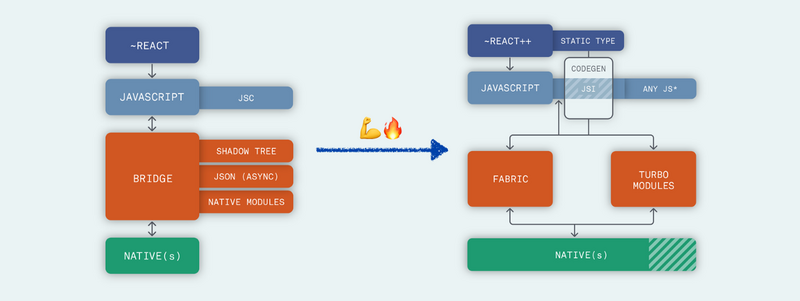
希望到时 React Native 能带给我们更好的开发与使用体验!
FAQ
最后,回答几个大家可能有的疑问:
- 为什么不用 try...catch?
答: 无法确定哪个代码块会出现异常,大量使用try...catch 会存在性能问题,并且它只能捕获同步代码中的异常,对于异步代码中可能出现的异常束手无策;另外它也存在 “绝望的陷阱” 这一问题。 - ErrorUtils 能捕获异步的异常吗?
答:可以。只要是RN应用内抛出的异常都会被 ErrorUtils 捕获。 - ErrorUtils 为什么不能捕获Promise中的异常?
答:因为对于JSC来说,此时并没有发生错误,当然无法被捕获。我们所说的 Promise 异常,其实是Promise 设计缺陷导致一个 rejected Promise 一直未被处理,表现为:异常被吞掉了。因此我们需要定义onUnhandled进行处理。 - 可以使用function component 来编写错误边界吗?
答:不可以。错误边界只能是 Class 组件。如果你想把 ErrorUtils 与 Promise 异常处理从错误边界中剥离出来放到其他函数式组件中也是可以的,但是从组件化设计的角度来看的话,不推荐这样做。
声明
原创分享不易,觉得对你有所帮助的话,欢迎点赞收藏。
转载需经本人同意,并附上思否原文链接。
谢谢!
以上是 【从源码分析】可能是ip流量最实用的React Natioll异常解决方案【建议收藏家】 的全部内容, 来源链接: utcz.com/a/46253.html

